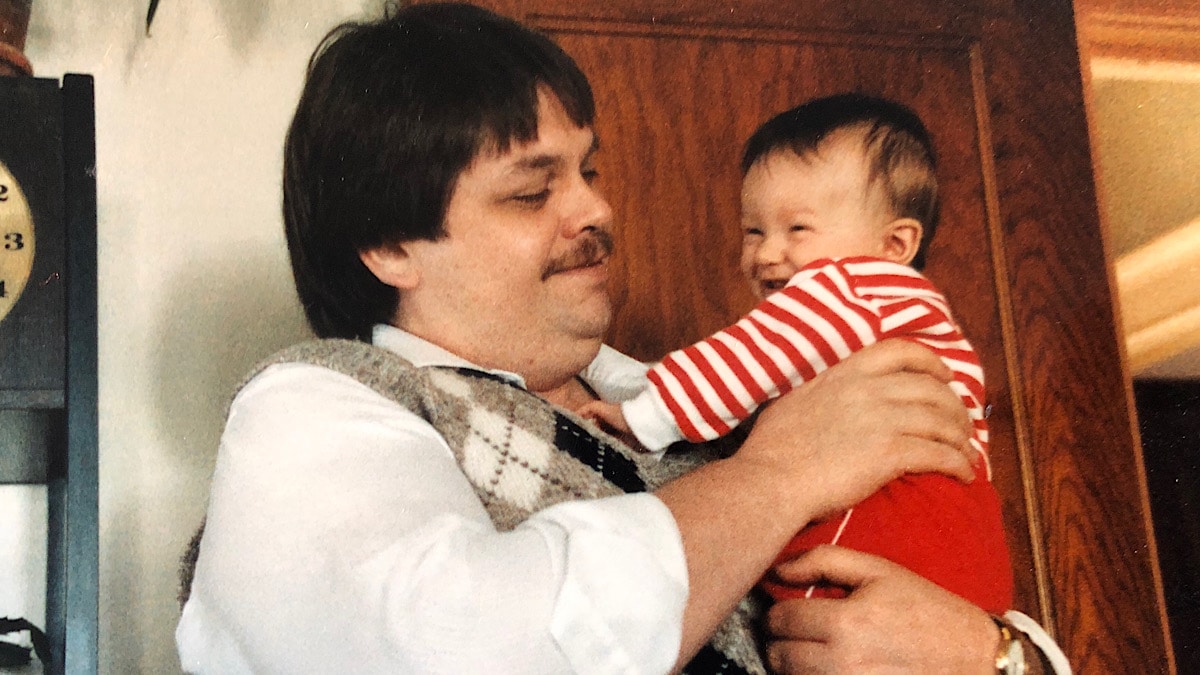Excerpt: Read our 25 quotes on masculinity and learn what can make it “toxic,” how to best raise our boys, and how to break a cycle of harm.
Click here to jump right to our list of quotes on Masculinity!
Introduction: Be A Man
One of the most harmful phrases we can use with boys as they are being tried, failing, hurt, or experimenting with life is, “Be a man.” In fact, according to Eva Wiseman, editor at Observer Magazine, it’s one of the most dangerous phrases in the english language [1].
This phrase, which is representative of a deeper rooted mentality of how some boys are treated and raised, has some very toxic and harmful assumptions that come with it. When a boy is told to, “Be a man,” it implies that he should fight back, suppress his emotions, show no pain, and never, ever cry. These subtle cues, especially when given repeatedly and intentionally over time, can lead to damaging and very real long-term effects including depression, anxiety, and violence [1, 2].
What’s even worse than the consequences that this phrase and way of thinking can have on boys and young men are the consequences it can have on everybody who comes into contact with them thereafter, particularly, their family.
According to Terrence Real, psychotherapist and author of I Don’t Want To Talk About It, difficulty with intimacy, workaholism, alcoholism, abusive behavior, and rage—are really attempts to escape depression and escape the stigma of being anything less than a, “man” as they were told to be when they were growing up. And these escape attempts only hurt the people they love and pass their condition on to their children. And so the cycle viciously continues.
We need to revaluate what it means to, “Be a man” and we need to have a conversation about, what Real calls the “silent epidemic” in men—depression—and its root causes. By opening a dialog and having a conversation with trusted individuals, the healing process can begin and the vicious cycle can be broken. For many, this will be an incredibly long and painful road, but once the cycle is broken, it will halt a cycle of depression, aggression, and abuse that will otherwise continue and cause a much longer road of pain and suffering into the generations that follow.
To start the conversation, you will find our collection of 25 quotes on masculinity below, split up into five categories from thought leaders in this realm (Click to jump):
- What Makes Masculinity Toxic (5 Quotes)
- The Effects of Toxic Masculinity (5 Quotes)
- What Our Boys and Men Really Need (5 Quotes)
- On Raising Boys (5 Quotes)
- Breaking the Toxic Cycle (5 Quotes)
- Bonus: Picture Quotes to Share (5 Quotes)
To take a deeper dive and look more thoroughly into the topic, you will find resources at the end. We hope this helps and encourages you, or a loved one, to take the first step forward. Good luck.
NEW In The Shop: Don’t Let The Tame Ones Tell You How To Live [Poster]
Why We ♥ It: Some of the best advice I (Matt here) ever got was: don’t take life advice from people who aren’t living a life you want to live and don’t take criticism from people you wouldn’t go to for advice. I created this poster to act as a reminder to listen more closely to our role models and less closely to our critics, trolls, and tamed-comfort-zone-hugger acquaintances. It’s also a perfect gift for the outdoor adventurer, travel enthusiast, or solo explorer (or soon to be). Available in print or digital download. 👇🏼
...Want to advertise your book, product, or service? Send inquiries to matt@movemequotes.com.
What Makes Masculinity Toxic:
“Man up. What a cleverly disguised way to say shut up. Shut up, or fight back, or you deserved what you got.”
Riley Redgate, Noteworthy
“There are many things men do to have the type of power we associate with masculinity: We have to perform and stay in control. We’re supposed to conquer, be on top of things, and call the shots. We have to tough it out, provide, and achieve. Meanwhile we learn to beat back our feelings, hide our emotions, and suppress our needs.“
Michael Kaufman, via xyonline.net
“Men in trouble are often in trouble precisely because they are trying to Get a Grip and Act Like a Man. We are at risk of suicide because the alternative is to ask for help, something we have been repeatedly told is unmanly. We are in prison because the traditional breadwinning expectation of manhood can’t be met, or the pressure to conform is too great, or the option of violence has been frowned upon but implicitly sanctioned since we were children.”
Robert Webb, How Not To Be a Boy
“We have this kind of male pride thing. We say, ‘I can look after myself. I don’t need to talk to anyone,’ and it’s a complete fallacy. Not communicating helps to kill us.“
Mike Jenn, Researchers Confront an Epidemic of Loneliness
“Toxic masculinity is what can come of teaching boys that they can’t express emotion openly; that they have to be “tough all the time”; that anything other than that makes them “feminine” or weak. (No, it doesn’t mean that all men are inherently toxic.)”
Maya Salam, New York Times
The Effects of Toxic Masculinity:
“Men who do not turn to face their own pain are too often prone to inflict it on others.”
Terrence Real, I Don’t Want To Talk About It
“When looking at the attributes associated with masculinity in the US, the same researchers identified the following; winning, emotional control, risk-taking, violence, dominance, playboy, self-reliance, primacy at work, power over women, disdain for homosexuality, and pursuit of status.”
Brené Brown, Daring Greatly
“Healthy self-esteem is the capacity—rarely taught to either sex in our culture—to hold oneself in warm regard even when colliding with one’s human shortcomings. Our capacity to stay rooted in a compassionate understanding of one another’s flaws keeps us humane. When we lose touch with our own frailties we become judgmental and dangerous to others.”
Terrence Real, I Don’t Want To Talk About It
“When men seek that control — when we feel it’s our due — and don’t achieve it, we can resent and hate. Toxic masculinity sets expectations that prime us for disappointment. We turn that disappointment on ourselves and others as anger and hatred.”
James Hamblin, The Under-Discussed Role of Toxic Masculinity
“Men who are afraid to feel keep women around to do their feeling for them while dismissing us for the same supposedly ‘inferior’ capacity to feel deeply. But in this way also, men deny themselves their own essential humanity, becoming trapped in dependency and fear.”
Audre Lorde, Man Child: A Black Lesbian Feminist’s Response
What Our Boys and Men Really Need:
“All of us have to recognize that being a man is first and foremost being a good human. That means being responsible, working hard, being kind, respectful, compassionate. If you’re confident about your strength, you don’t need to show me by putting somebody else down. Show me by lifting somebody else up.”
Barack Obama, The Independent
“It’s okay to cry.”
Morrie Schwartz, Tuesdays With Morrie
Read also: 28 Timeless Morrie Schwartz Quotes from Tuesdays With Morrie
“We have set an unfair and unachievable standard, and in trying to live up to it, many men are slowly killing themselves. We have to move far beyond our outdated ideas of masculinity, and get past our very ideas about what being a man is. We have to start seeing men as innately so, with no need to prove who they are, to themselves or anyone else.“
Kali Holloway, Salon
“Being a man was not the opposite of being feminine or emotional. It was the opposite of being childish and immature. It meant having the courage to face your fears and responsibilities, but also not being afraid of your emotions or weaknesses.”
Matthew Ryder, Depression, violence, anxiety: the problem with the phrase ‘be a man’
“My father’s notion of being a man was also flexible. As I grew from a child of the 70s to an adult of the 90s, it grew with me. I learned that sometimes a man should back down from a fight; that real men are also feminists; and that not being seen as a ‘sissy’ is meaningless, while not being homophobic is important.“
Matthew Ryder, Depression, violence, anxiety: the problem with the phrase ‘be a man’
On Raising Boys:
“The key component of a boy’s healthy relationship to his father is affection, not ‘masculinity.’ The boys who fare poorly in their psychological adjustment are not those without fathers, but those with abusive or neglectful fathers. Contrary to the traditional stereotype, a sweet man in an apron who helps out with the housework may be just the nurturant kind of father a boy most needs.”
Terrence Real, I Don’t Want To Talk About It
“As with intelligence, so too with behaviors—malleable kids live up, or down, to our expectations.”
Terrence Real, I Don’t Want To Talk About It
“I think not touching a child for decades at a time is a form of injury. I think withholding any expression of love until a young boy is a grown man is a form of emotional violence. And I believe that the violence men level against themselves and others is bred from just such circumstances.”
Terrence Real, I Don’t Want To Talk About It
“Boys don’t hunger for fathers who will model traditional mores of masculinity. They hunger for fathers who will rescue them from it. They need fathers who have themselves emerged from the gauntlet of their own socialization with some degree of emotional intactness. Sons don’t want their father’s ‘balls’; they want their hearts. And, for many, the heart of a father is a difficult item to come by.”
Terrence Real, I Don’t Want To Talk About It
“We need to discuss the dads who coach football, read bedtime stories, locate rogue school socks, and scare away the night-time monsters. Who encourage their children’s mental resilience, and scaffold their entry into our increasingly complex social world. Who are defined not by their genetic relatedness to their children but because they step up and do the job – the stepdads, social dads, grandfathers, friends, uncles and boyfriends. And by broadening this conversation and sharing our newfound knowledge, we empower fathers to be more involved with their children, something that benefits us all. The sons of today who see dad as an equal to mum in the domestic setting will follow this role model when they themselves become parents. This leads to a change in culture; a move towards equality in domestic work, a sharing of the burden of the parenting tax on career development, something that is overwhelmingly borne by mothers today, and a narrowing of the gender pay gap.”
Anna Machin, The Marvel of the Human Dad
Breaking the Toxic Cycle:
“We need to change the conversations we have about fathers. Yes, some fathers are absent, as are some mothers, and some might be the inept characters of marketing ads or cartoons, struggling to work the washing machine or to look after the baby alone. But the majority of fathers are not these people. We need to broaden our spectrum of who we think dad is to include all the fathers who stick around, investing in their children’s emotional, physical and intellectual development, regardless of whether they live with their children or not.“
Anna Machin, The Marvel of the Human Dad
“The unresolved pain of previous generations operates in families like an emotional debt. We either face it or we leverage our children with it. When a man stands up to depression, the site of his battle may be inside his own head, but the struggle he wages has repercussions far beyond him. A man who transforms the internalized voice of contempt resists violence lying close to the heart of patriarchy itself. Such a man serves as a breakwall. The waves of pain that may have wreaked havoc across generations spill over him and lose their virulent force—sparing his children. The ‘difficult repentance’ such a man undertakes protects those who follow him. And his healing is a spiritual gift to those who came before. The reclaimed lost boy such a man discovers—the unearthed emotional, creative part of him—may not be merely the child of his own youth, but the lost child of his father’s youth, or even of his father’s father.”
Terrence Real, I Don’t Want To Talk About It
“Beyond a certain point in a man’s life, if he is to remain truly vital, he needs to be actively engaged in devotion to something other than his own success and happiness. The word discipline derives from the same root as the word disciple. Discipline means ‘to place oneself in the service of.’ Discipline is a form of devotion. A grown man with nothing to devote himself to is a man who is sick at heart. What a great many men in this culture choose to serve is their own reflected value, which they often believe serves the needs of their family, even while their families may be crying out for something different from them.”
Terrence Real, I Don’t Want To Talk About It
“Research teaches us that the capacity to reach out to others for help in dealing with fear and pain is the best single remedy for emotional injury. Whether the person is struggling with the effects of combat, rape, or childhood injury, the best predictor of trauma resolution is good social support.”
Terrence Real, I Don’t Want To Talk About It
“I believe that one first changes the behaviors, then, if one is lucky, the feelings follow.”
Terrence Real, I Don’t Want To Talk About It
Picture Quotes On Masculinity To Share:
![25 Quotes on Masculinity, What Can Make It "Toxic," and How To Break the Cycle of Harm to Our Boys and Men. "Man up. What a cleverly disguised way to say shut up. Shut up, or fight back, or you deserved what you got." ~Riley Redgate [Picture Quote]](https://www.movemequotes.com/wp-content/uploads/2019/03/Man-UP.jpg)
![25 Quotes on Masculinity, What Can Make It "Toxic," and How To Break the Cycle of Harm to Our Boys and Men. “Men who do not turn to face their own pain are too often prone to inflict it on others.” ~ Terrence Real [Picture Quote]](https://www.movemequotes.com/wp-content/uploads/2019/03/Face-it.jpg)
![25 Quotes on Masculinity, What Can Make It "Toxic," and How To Break the Cycle of Harm to Our Boys and Men. “All of us have to recognize that being a man is first and foremost being a good human. That means being responsible, working hard, being kind, respectful, compassionate. If you’re confident about your strength, you don’t need to show me by putting somebody else down. Show me by lifting somebody else up.” ~ Barack Obama [Picture Quote]](https://www.movemequotes.com/wp-content/uploads/2019/03/Obama.jpg)
![25 Quotes on Masculinity, What Can Make It "Toxic," and How To Break the Cycle of Harm to Our Boys and Men. “The key component of a boy’s healthy relationship to his father is affection, not ‘masculinity.’ The boys who fare poorly in their psychological adjustment are not those without fathers, but those with abusive or neglectful fathers. Contrary to the traditional stereotype, a sweet man in an apron who helps out with the housework may be just the nurturant kind of father a boy most needs.” ~ Terrence Real [Picture Quote]](https://www.movemequotes.com/wp-content/uploads/2019/03/Apron.jpg)
![25 Quotes on Masculinity, What Can Make It "Toxic," and How To Break the Cycle of Harm to Our Boys and Men. "We need to change the conversations we have about fathers. Yes, some fathers are absent, as are some mothers, and some might be the inept characters of marketing ads or cartoons, struggling to work the washing machine or to look after the baby alone. But the majority of fathers are not these people. We need to broaden our spectrum of who we think dad is to include all the fathers who stick around, investing in their children’s emotional, physical and intellectual development, regardless of whether they live with their children or not." ~ Anna Machin [Picture Quotes]](https://www.movemequotes.com/wp-content/uploads/2019/03/Fathers.jpg)
Resources:
Most of the quotes for this article were sourced from Terrance Real’s book, I Don’t Want to Talk About It. If you want to dig deeper into this topic, his book comes highly recommended:
By: Terrence Real
Book Overview: Twenty years of experience treating men and their families has convinced psychotherapist Terrence Real that depression is a silent epidemic in men—that men hide their condition from family, friends, and themselves to avoid the stigma of depression’s “un-manliness.” Problems that we think of as typically male—difficulty with intimacy, workaholism, alcoholism, abusive behavior, and rage—are really attempts to escape depression. And these escape attempts only hurt the people men love and pass their condition on to their children. This groundbreaking book is the “pathway out of darkness” that these men and their families seek. Real reveals how men can unearth their pain, heal themselves, restore relationships, and break the legacy of abuse.
Read Next:
NEW In The Shop: Don’t Let The Tame Ones Tell You How To Live [Poster]
Why We ♥ It: Some of the best advice I (Matt here) ever got was: don’t take life advice from people who aren’t living a life you want to live and don’t take criticism from people you wouldn’t go to for advice. I created this poster to act as a reminder to listen more closely to our role models and less closely to our critics, trolls, and tamed-comfort-zone-hugger acquaintances. It’s also a perfect gift for the outdoor adventurer, travel enthusiast, or solo explorer (or soon to be). Available in print or digital download. 👇🏼
...Want to advertise your book, product, or service? Send inquiries to matt@movemequotes.com.

Written by Matt Hogan
Founder of MoveMe Quotes. On a mission to help busy people do inner work—for better mental health; for healing; for personal growth. Find me on Twitter / IG / Medium. I also share daily insights here. 🌱
It has taken me 1,000’s of hours to build this free library for you. If it has helped you, you can support my continued effort here. ☕️



![To My Daughter. [Excerpt]](https://movemequotes.com/wp-content/uploads/2023/06/Daughter.jpeg)



